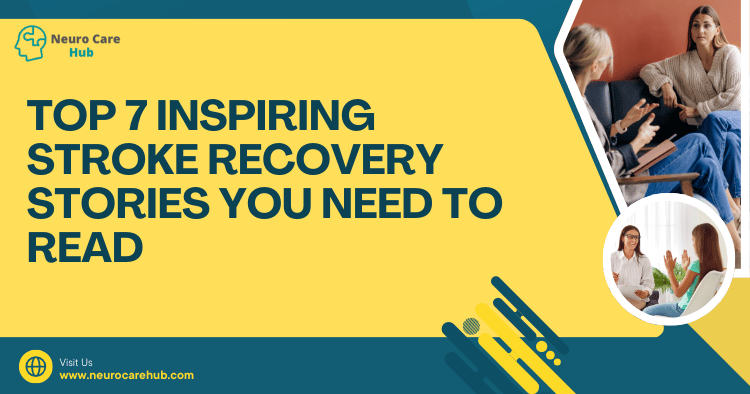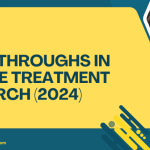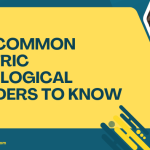Table of Contents
- Introduction
- Story 1: John’s Journey to Recovery
- Story 2: Maria’s Determination
- Story 3: David’s Road to Independence
- Story 4: Emma’s New Normal
- Story 5: Tom’s Triumph Over Adversity
- Story 6: Linda’s Lifelong Lessons
- Story 7: Kevin’s Community Support
- FAQs about Stroke Recovery
- Conclusion
Introduction
Stroke can be a life-altering event, but recovery is possible, and the stories of those who’ve persevered through adversity can serve as powerful inspiration. In this article, we’ll share seven remarkable stroke recovery stories that highlight resilience, determination, and the human spirit’s capacity to overcome challenges. Whether you’re a stroke survivor, a caregiver, or simply someone seeking inspiration, these narratives will uplift and motivate you.
Story 1: John’s Journey to Recovery
John was only 55 when he suffered a stroke that left him with paralysis on his left side. Initially overwhelmed, feeling as though he had lost his identity, John began to focus on small, achievable goals with the support of his family and a dedicated rehabilitation team.
“Recovery is not a race; you don’t have to feel guilty if it takes you longer than you thought.”
Through physical therapy, John learned to regain movement in his arm and leg. He documented his progress on a blog, sharing exercises and motivational quotes, which helped him stay accountable. Today, John is back to biking and enjoys nature walks, using his story to inspire others facing similar challenges.
Takeaway: Small victories can lead to significant progress in recovery. For more insights into the importance of early intervention in neuro care, check out our article on the Top 5 Benefits of Early Intervention in Neuro Care.
Story 2: Maria’s Determination
Maria, a devoted grandmother, found herself struggling to communicate after her stroke. Although she felt isolated, Maria refused to let this setback define her. With the help of speech therapy and encouragement from her grandchildren, she practiced daily to regain her ability to speak clearly.
“The only way to get through the storm is to keep pushing forward, one step at a time.”
Maria also took up painting as a form of therapy, allowing her to express herself non-verbally. Her artwork has since been showcased in local galleries, and she often hosts workshops for other stroke survivors, encouraging them to find their unique forms of expression.
Takeaway: Creative outlets can play a vital role in emotional and physical recovery. Explore more about how family support enhances neuro recovery in our article on the Top 5 Ways Family Support Enhances Neuro Recovery.
Story 3: David’s Road to Independence
David was in his early 30s when he suffered a severe stroke that affected his mobility and speech. The journey to reclaiming his independence was fraught with challenges. However, David’s fierce determination and the support of his peers in a local stroke recovery group helped him stay motivated.
“Independence does not mean isolation; it means the ability to stand on your own while still seeking help from others.”
Using adaptive technology, David learned to communicate more effectively and even returned to work part-time as a graphic designer. His innovative approach to problem-solving and the use of assistive devices has inspired many within his community.
Takeaway: Community support and adaptive technology can significantly enhance recovery. For more on the differences between neuro care and mental health care, refer to our article on Neuro Care vs. Mental Health Care: Key Differences Explained.
Story 4: Emma’s New Normal
Emma’s stroke at age 40 forced her to reevaluate her life priorities. While she initially struggled with feelings of loss, she soon embraced the opportunity to slow down and appreciate life’s simple pleasures. Emma started a blog to share her experiences and connect with others in similar situations.
“Sometimes, the best way to move forward is to take a step back and reflect.”
Through mindfulness practices and yoga, she discovered new ways to cope with her limitations while fostering a sense of inner peace. Emma now leads yoga classes tailored for stroke survivors, bringing together a community of individuals seeking healing.
Takeaway: Embracing a new lifestyle can lead to unexpected joys. Learn more about integrating neuro care into your wellness routine in our article on the Top 5 Ways to Integrate Neuro Care into Wellness Routine.
Story 5: Tom’s Triumph Over Adversity
Tom, a former athlete, faced a severe stroke that left him unable to walk. His athletic background fueled his desire to overcome this new challenge. With the help of an exceptional physical therapist, Tom set ambitious goals to regain his strength.
“Every setback is a setup for a comeback.”
After months of hard work, Tom not only learned to walk again but also participated in a local charity run to raise funds for stroke research. His story of resilience serves as a reminder that determination can lead to extraordinary achievements.
Takeaway: Athleticism and perseverance can help guide recovery efforts. Read about innovative treatments for neurological disorders in our article on the Top 5 Innovative Treatments for Neurological Disorders.
Story 6: Linda’s Lifelong Lessons
Linda, a retired teacher, experienced a stroke that affected her cognitive functions. Instead of succumbing to despair, she decided to approach her recovery as a lifelong learning opportunity. She enrolled in memory classes and engaged in activities that stimulated her brain, such as puzzles and reading.
“Learning is not a destination; it’s a journey we all embark on, regardless of our age.”
Linda also became an advocate for stroke awareness in her community, sharing her knowledge about the importance of recognizing stroke symptoms. Her efforts have helped many seek timely medical attention, thereby saving lives.
Takeaway: Continuous learning can enhance recovery and benefit the community. For more insights on the factors affecting neuro care access today, check out our article on the Top 5 Challenges in Global Neuro Care Access Today.
Story 7: Kevin’s Community Support
After his stroke, Kevin found solace in his local support group, where he connected with others who shared similar experiences. Together, they formed a close-knit community that provided emotional support and shared recovery strategies.
“Alone we can do so little; together we can do so much.” — Helen Keller
Kevin’s story emphasizes the importance of social connections in recovery. He often organizes community events to raise awareness about strokes, ensuring that others understand the importance of prevention and timely intervention.
Takeaway: Building a supportive community can significantly aid in recovery. Learn about the emergency neuro care tips in our article on the Top 5 Emergency Neuro Care Tips When Every Second Counts.
FAQs about Stroke Recovery
Q: How long does stroke recovery take?
A: Recovery varies widely among individuals. While some may see significant improvements within a few months, others may continue to recover for years.
Q: What therapies are available for stroke recovery?
A: Common therapies include physical therapy, occupational therapy, and speech therapy. Each focuses on different aspects of recovery.
Q: Can diet impact stroke recovery?
A: Yes, a balanced diet rich in fruits, vegetables, whole grains, and lean proteins can support recovery and overall health. Consider consulting with a nutritionist for personalized advice.
For more information on stroke recovery resources, visit the American Stroke Association and Mayo Clinic’s Stroke Information.
Conclusion
The stories of John, Maria, David, Emma, Tom, Linda, and Kevin exemplify the power of resilience and community in stroke recovery. Each narrative showcases the unique paths individuals can take toward reclaiming their lives after a stroke, offering hope and inspiration to others facing similar challenges. Remember, recovery is a journey, and every small step counts. Whether you are on this path yourself or supporting a loved one, let these stories remind you that you are not alone, and brighter days are ahead.
For further insights on neuro care, explore our comprehensive guide on Neuro Care: A Guide to Brain Health.






